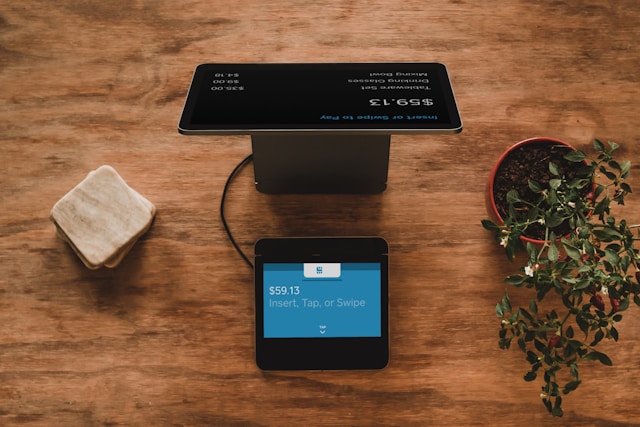Selling your business is one of the most significant decisions you’ll ever make. Whether you’re planning for retirement, pursuing new opportunities, or simply ready to cash out, understanding how to sell a business for maximum value is key to securing a successful exit. This guide outlines the essential steps to help you prepare, attract the right buyer, and negotiate a strong deal while maximizing your business valuation and minimizing stress.
Know Your Business’s True Value
Before listing your business for sale, you must understand its true worth. Business valuation is a crucial first step in the selling process. Different valuation methods such as EBITDA multiples, discounted cash flow (DCF), and asset-based valuations may yield different results depending on your industry and company structure.
Key value drivers that boost your business’s appeal include:
-
Recurring revenue streams
-
Stable customer base
-
Strong brand reputation
-
Unique intellectual property
-
Scalable business model
Engage a professional business appraiser or M&A advisor to get a realistic and defensible valuation. A well-documented valuation helps you set the right asking price and negotiate from a position of strength.
Get Your Financials in Order
One of the most common reasons deals fall through is messy or unclear financials. To sell your business for top dollar, ensure your books are clean and accurate. Buyers will request 3–5 years of financial statements, including income statements, balance sheets, and cash flow reports.
Key preparation steps:
-
Ensure all revenue is properly recorded (avoid underreporting to reduce taxes it lowers your valuation)
-
Separate personal expenses from business expenses
-
Fix any outstanding tax issues or liabilities
-
Provide documentation for contracts, leases, and recurring income sources
Organized financials increase buyer confidence and reduce due diligence friction making your business more attractive and sellable.
Optimize Your Business Before You Sell
To attract high-quality buyers and increase business valuation, make your business more profitable and less reliant on you as the owner. This may take 6–12 months of preparation but can dramatically impact your selling price.
Here’s how to optimize your business before a sale:
-
Cut unnecessary expenses to improve profit margins
-
Delegate or automate daily operations to reduce owner dependence
-
Diversify your customer base and income streams
-
Secure long-term contracts or repeat customers
-
Streamline workflows and document standard operating procedures (SOPs)
Buyers are drawn to businesses that run efficiently and show consistent, sustainable growth.
Build a Strong Deal Team
A successful business sale is a team effort. Trying to sell a company on your own can lead to costly mistakes, undervaluation, or legal trouble. Assemble a team of experts to guide you through the process:
-
Business broker or M&A advisor: Helps market your business, qualify buyers, and negotiate the deal
-
Accountant or CPA: Ensures your financials are accurate and tax-efficient
-
Business attorney: Reviews contracts, negotiates terms, and protects your interests
This team helps preserve confidentiality, manage deal complexities, and close the sale on favorable terms.
Find the Right Buyer
Finding the right buyer is critical if you want to sell a business for the highest possible price. There are several types of buyers, each with different motivations:
-
Strategic buyers: Competitors or companies looking to expand their market
-
Financial buyers: Investors or private equity firms focused on ROI
-
Individual buyers: Aspiring entrepreneurs or operators
You can find buyers through business-for-sale marketplaces, broker networks, or direct outreach. When marketing your business, balance transparency with confidentiality avoid disclosing sensitive details publicly.
Prepare for Due Diligence
Once a buyer is interested, they will initiate a thorough due diligence process. This is where they verify everything you’ve presented, from finances to legal documents.
Be ready to provide:
-
3–5 years of financials
-
Customer and vendor contracts
-
Employee agreements and payroll records
-
Legal documents (permits, leases, licenses)
-
Details about assets, inventory, and equipment
Create a secure data room or folder to organize these materials in advance. The more prepared and transparent you are, the smoother this phase will go.
Negotiate the Deal Terms
Price matters, but deal structure can be just as important. When selling a business, common structures include:
-
Cash upfront: Full payment at closing
-
Earn-out: Additional payments based on future performance
-
Seller financing: You finance part of the purchase over time
-
Equity rollover: Retaining a small stake post-sale
Negotiate terms that protect your interests while appealing to the buyer. Use a letter of intent (LOI) to outline initial terms, then work toward a final purchase agreement.
Close the Sale Smoothly
As closing approaches, your legal and financial advisors will finalize all documents, including asset transfers, employee notifications, and any escrow arrangements. You may be asked to stay on for a transition period often 3 to 12 months to help train the new owner and ensure business continuity.
Checklist for a smooth closing:
-
Finalize all contracts and approvals
-
Notify employees and customers appropriately
-
Transfer licenses, domains, and systems
-
Collect final payment or arrange financing terms
Once the sale is complete, celebrate your success and take time to plan your next chapter.
Conclusion
Knowing how to sell a business for maximum value means preparing early, presenting a strong financial and operational case, and negotiating smartly. With the right team, strategy, and preparation, you can exit your business on your terms and walk away with the reward your hard work deserves.

